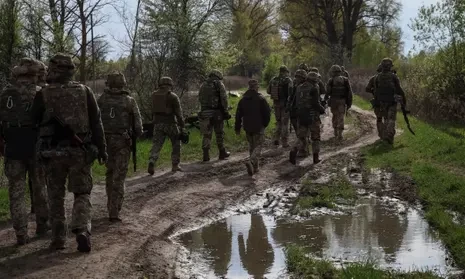
Could the Hwange National Park tragedy have been avoided or at least minimised?
Viewpoint by Wisdom Mdzungairi
There is no simple answer. The death of 69 elephants from cyanide poisoning by a poaching syndicate involving some Tsholotsho villagers has left the nation dumbfounded in what could easily become Zimbabwe’s worst man-made environmental disaster.
Our environment has been a victim of all sorts of attacks. Some of these attacks are natural such as forest fires, water scarcity and floods.
However, this unnatural man-made environmental catastrophe compounds the extent to which authorities could devise effective ways to combat rampant poaching, land degradation, illegal gold panning, hunger, war, explosions and chemical spills etc. These usually carry with them heavy price tags as property and lives are damaged beyond full compensation and repair.
Given the fact that Tsholotsho lies atop Gwampa Valley whose huge methane gas deposits are undisputable, it speaks to educating the villagers on the importance of natural resources their area is endowed with — and the need to protect them.
The effects of the cyanide on water holes in the vast Hwange National Park are likely to take generations — killing wildlife, contaminating water and threatening the fragile ecosystem. It is hard to determine the worst part of the disaster. But, perhaps it is the fact that it was preventable.
It should be considered one of the most devastating human-caused ecological cataclysms with both the long-term and short-term effects of the cyanide being studied.
- Chamisa under fire over US$120K donation
- Mavhunga puts DeMbare into Chibuku quarterfinals
- Pension funds bet on Cabora Bassa oilfields
- Councils defy govt fire tender directive
Keep Reading
Immediate effects include the deaths of several tens of jumbos to as many as thousands of plains game, jackals, and an unknown numbers of other species.
Already, indications are the issue is slowly turning political. I still do not believe that poor people are involved in large-scale poaching, unless at the instance of the rich and famous — politicians included. It speaks to Environment minister Saviour Kasukuwere to take the bull by its horns.
Indeed, this is a dark hour for environmentalists, animal lovers, tourism development, and, of course, the generality of Zimbabweans. This, of course, cannot be the work of just one South African individual working with poor villagers in Tsholotsho unless some among us are hiding behind the finger.
Just last week, a medical doctor was arrested at a leafy Harare suburb selling ivory.
Because of its transnational nature spanning source, transit and demand countries, ending wildlife trafficking requires both international collaboration between countries, and internal coordination between government agencies.
We should also look into other habitat issues including investigating the veterinary aspects —causes of death and effects to the Tsholotsho community bordering Hwange National Park, which has about 50 000 elephants.
These elephants stray into the villages looking for food and water. No doubt this environmental catastrophe always happened at a smaller scale over the years especially during the drier months of the year — August-November.
Yesterday, Zimbabwe commemorated World Rhino Day when we are headed toward another year of record poaching.
Over 600 rhinos have been killed — almost twice our entire population. The criminal syndicates targeting rhinos, elephants and other species are also undermining peace, security and economic development in many countries.
Others say the extent of destruction in Hwange could have been far lesser if stricter regulations had been put in place and the authorities equipped to deal with the situation. But, Zimbabwe Parks does not have enough financial resources. Besides, daring poachers have always used baits to kill jumbos.
Hence, Kasukuwere should declare the entire watershed between Tsholotsho and Hwange and Gwayi Valley areas an eco-sensitive zone under the Environment Management Act.
This, in practice, bans not only all unannounced travels in the park, but construction activity in these areas. Some in Tsholotsho — a major Campfire area — have opposed it stoutly arguing that such an order would adversely affect development and the economic progress of the region.
In the aftermath of this disaster, if lessons are indeed learnt, all ongoing development projects, including dams, must be reviewed, and their carrying capacity and cumulative impact on the Hwange ecosystem should be assessed and the ecological integrity of the park made non-negotiable.
No doubt, stage-managed and faulty environmental clearances in the area contributed to the colossal crisis that is staring us in the face.
It is hoped that President Robert Mugabe will establish a national taskforce consisting of police, customs, justice, defence, environment and other specialised agencies.
Indeed, our country must take action without delay and show we are serious in the fight against wildlife crime. Only a combination of strong criminal penalties, zero tolerance of corruption and the disruption of smuggling routes will bring this plague to an end.
It is also essential to combat the growing demand for illegal wildlife products, which is driving poaching. We need a more detailed assessment of the landscape.This will help by sending early warning signals to poachers.











